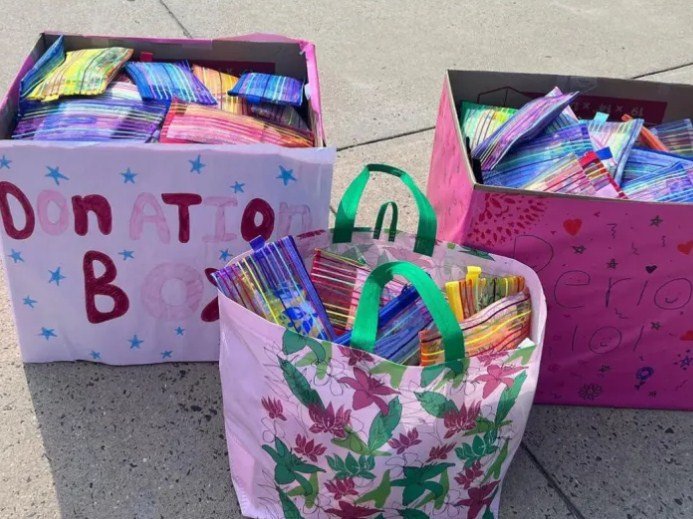The Problem of Period Poverty
Period poverty is the lack of access to menstrual products, hygiene facilities, and education for people who menstruate. It affects millions of people around the world, especially in low-income and marginalized communities. Period poverty can have serious consequences for the health, education, dignity, and empowerment of people who menstruate.
In the United States, period poverty is also a reality for many students who cannot afford or access menstrual products in school. According to a 2019 survey by Thinx and PERIOD, one in five teens have struggled to afford period products or were not able to purchase them at all. Additionally, 84% of students have either missed class time or know someone who has because they did not have access to period products.
The Virginia Law on Menstrual Products in Schools
In 2020, Virginia became the first state in the nation to pass a law requiring public schools to provide free menstrual products in their restrooms. The law, which went into effect on July 1, 2021, mandates that schools must make menstrual products available to students at all times in at least 50% of the school’s bathrooms.

The law aims to address the issue of period poverty and its impact on students’ education and well-being. According to Delegate Mark Keam, one of the sponsors of the bill, “No student should have to miss class time, face embarrassment, or go through any other difficulty because they lack access to basic health care products.”
However, the law does not provide any funding or guidance for schools to implement the requirement. This means that the costs and logistics of providing menstrual products in schools are left to the local school divisions and their community partners.
The Challenges and Solutions for Schools and Communities
According to Cardinal News, a local news outlet in Virginia, some school divisions have faced challenges in complying with the law due to budget constraints, supply shortages, and vandalism. For example, Fairfax County Public Schools, the largest school division in the state, estimated that it would cost $200,000 per year to provide menstrual products in its 198 schools. However, the division only received $20,000 from the state for this purpose.
To overcome these challenges, some school divisions have partnered with local organizations and businesses to secure donations and grants for menstrual products. For example, Loudoun County Public Schools received a $10,000 grant from the Community Foundation for Northern Virginia to purchase menstrual products for its 95 schools. Similarly, Arlington Public Schools collaborated with the Arlington Food Assistance Center to distribute menstrual products to its 41 schools.
These partnerships have not only helped schools meet the legal requirement, but also raised awareness and support for the issue of period poverty in the community. As Jennifer Allard, the executive director of the Arlington Food Assistance Center, said, “We are proud to be part of this effort to ensure that all students have access to the basic necessities they need to succeed in school and in life.”
The Future of Menstrual Equity in Virginia and Beyond
The Virginia law on menstrual products in schools is a landmark legislation that sets a precedent for other states and countries to follow. However, it is not enough to solve the problem of period poverty and menstrual inequity. There is still a need for more funding, education, and advocacy to ensure that all people who menstruate have the resources and rights they deserve.
Some of the actions that can be taken to achieve this goal include:
- Providing federal and state funding for schools and other public facilities to provide free menstrual products
- Expanding Medicaid and SNAP benefits to cover menstrual products
- Eliminating the sales tax on menstrual products, also known as the “tampon tax”
- Increasing the availability and affordability of reusable and eco-friendly menstrual products
- Improving the quality and inclusivity of menstrual health education in schools and communities
- Supporting local and global organizations that work to end period poverty and stigma
By taking these actions, we can create a more just and equitable society for people who menstruate and for everyone.
